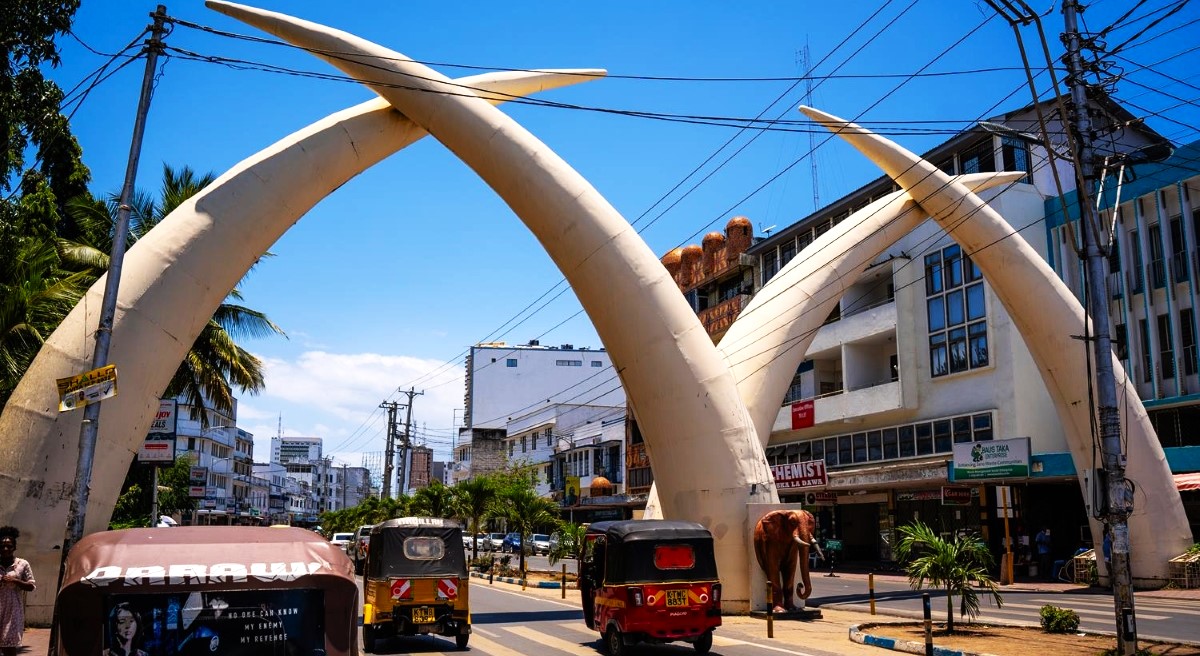East African Monetary Union will sail through Global Geopolitical Tensions. Bank Governors declare
The governors of the Central Banks in the East African Community have affirmed that the regional Monetary Union slated for 2031 was still on track, in line with the revised roadmap to that effect despite global political turmoil.
That was among the issues addressed during the 28th ordinary meeting of the East African Community Monetary Affairs Committee (MAC) held in Mombasa and chaired by the Governor of the Central Bank of Kenya Kamau Thugge.
The Committee noted the strong growth outlook for the EAC economies, with real GDP projected at 5.8 percent in 2025, which is higher than the projected growth globally and in Sub-Saharan Africa.
But despite the positive growth outlook, the Committee noted that there are downside risks, driven by global trade tensions and geopolitical concerns, coupled with climate related risks.
The Committee further noted that the average inflation in the region declined to 9.0 percent in 2024 from 11.2 percent in 2023, reflecting the impact of monetary policy measures, improved food supply owing to favorable weather conditions in most Partner States, and easing global commodity prices.
Inflation is expected to continue moderating across most Partner States in 2025. However, there are risks, particularly arising from climate and global shocks.
The meeting was attended by Governors and Senior Officials of the East African Community Partner State Central Banks, and the EAC Secretariat.
In attendance were, Edouard Normand Bigendako, Governor of the Bank of the Republic of Burundi; Soraya Hakuziyaremye, Governor of the National Bank of Rwanda; Johnny Ohisa Damian, Governor of the Bank of South Sudan and Emmanuel Tutuba, Governor of the Bank of Tanzania.
Others were Ali Yassin Sheikh, Deputy Governor of the Central bank of Somalia; and Adam Mugume, Executive Director, Research and Economic Analysis, Representing Governor of the Bank of Uganda.
Marie Malangu Kabedi Mbuyi, Governor of the Central Bank of Democratic Republic of Congo, was unable to attend the meeting and sent apologies.
The Meeting was also attended by Annette Ssemuwemba, Deputy Secretary General (Customs, Trade and Monetary Affairs), at the EAC Secretariat.
The Governors welcomed the Central Banks of Somalia and the Democratic Republic of Congo who were attending the MAC meeting for the first time since their respective countries joined the East African Community.
The Governors pledged to provide all necessary support to the two central banks as they integrate into the EAC.
The meeting was held against a backdrop of elevated uncertainties to the global economic outlook, arising from heightened trade tensions and persistent geopolitical concerns.
Additionally, global inflation is expected to decline at a slower pace due to the impact of higher trade tariffs, and the adverse impact of climate change.
The Committee observed that economic performance in the EAC region has remained relatively resilient, despite the global shocks.
In 2024, GDP growth varied among Partner States, with some recording robust growth that signaled sustained economic momentum, largely supported by good performance of agriculture sector, and the resilience of the services, mining and oil sectors.
Nevertheless, a few economies slowed down partly due to global and domestic shocks.
It was revealed that significant progress has been made in the harmonization of monetary and exchange rate policies including matching principles and rules for the regulation and supervision of the region’s financial system.
The standardization of information technology infrastructure; enhancing risk and crisis management frameworks to ensure the stability of the region’s financial systems; adopting climate- risk awareness; promoting the use of the regional cross-border payments system (EAPS); and harmonization of payment systems governance, legal, regulatory framework and standards have also been noted.
The Governors said the Partner States have made notable progress in the implementation of the EAC Macroeconomic Convergence Criteria.
The Committee noted that the financial sector in the EAC Region remains stable and resilient on account of adequate capital and liquidity buffers.
The main risks noted relate to decelerating growth in credit to the private sector, elevated cyber security threats, and Anti-Money Laundering and Counter-terrorist financing compliance risks.
The outlook remains positive on the backdrop of monetary policy easing, recovery in new lending, and strong earnings.
To strengthen macroprudential policy surveillance in the region, the Committee approved the Memorandum of Understanding (MOU) for regional Information Sharing on Crisis Preparedness, Management and Resolutions in pre-, during, and post-crisis periods.
The Governors considered and adopted the EAC Cross-Border Payment System Masterplan, which sets out strategic initiatives for payment systems modernization and integration in the EAC region.
The adoption of the Masterplan constitutes an important milestone towards an efficient, safer, cheaper, transparent and more inclusive cross-border payments systems in the region.

